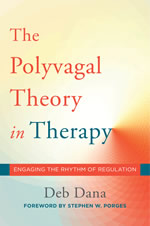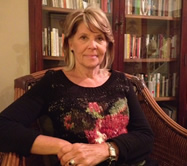Defne Dinler
SPT is pleased to introduce our newest columnist: Defne Dinler from Denver, Colorado, USA.
Defne is a licensed somatic counseling psychotherapist, specializing in body psychotherapy....
GenPax: Birth Matters
It is no longer acceptable for the more than 20 organizations dedicated to pre and perinatal life to operate as singular entities. We must band together and collaborate, we must aggregate our collective power to change the behaviors of the medical maternity community. If we are to successfully move the needle from traumatic birth – as a daily practice of U.S. hospitals – to a peaceful birth culture, we must form a unified front.
State Change is the Name of the Game: Further Adventures with Master Teacher John...
John Chitty, RPP, RCST®, (1949-2019) had many passions in his work: The two-chair method (working with polarity and pendulation), babies, relationships, energy medicine, states of health versus pathology, and autonomic nervous system state change. He had advice for every occasion from personal tragedy to business practice. He told several stories over and over again, which clued me into things he was most passionate about. One of them was the following, stated in an adamant and sometimes outraged insistent tone:
“I have people coming in here and telling me that they want to get to root of their trauma to be rid of it once and for all. Well, I don’t think that you need to get to the root of trauma; all you need is state change. (picks up hand and points at me) State change is the name of the game (inflection and repeated pointing with every word).”
“Yes sir!” I’d say.
DEFENSES: THE ROAD MAP TO YOUR ESSENCE
What is your relationship to your defenses? Can you name them? Can you name your self-destructive habits? Maybe notice where you keep feeling helpless or stuck?
From a psychological perspective, defenses are survival skills that resulted from negative childhood experiences—when our external environment threatened our internal sense of safety and wellbeing, be it overwhelming feelings such as abandonment, fear/terror, feeling unloved and unlovable and so forth. In response, we created survival skills to endure destructive emotional, physical and spiritual experiences. Due to our codependence on our caretakers, our defenses truly become survival skills.
The most mainstream defenses include denial, rationalization, repression, dissociation, projection, manipulation, caretaking and even humor. Although these skills allowed us to grow from child to adult, I often wonder about our relationship to our defenses as adults. A great survival skill for a child may not serve you as an adult.
Ol’ Doc Kisch’s Pseudo-Psychic Setback Theory
I had just gotten my first job at Kent State University Counseling Center after finishing my course work at the University of Kentucky and my internship at Wake Forest University. I lived in the Shaker Heights district of Cleveland and was driving down Route 480 that turns into Route 14 toward work at Kent when I was struck by a deep wave of depression. I felt like I used to feel earlier in my life. At some point I got off the road onto the sideline and just sat and was struck by the deep dark feelings of depression I was having and could not understand why that was happening. Here I was, having achieved what I was searching for my entire life, a position as a psychologist, and I was so summarily bummed out. After catching my breath, I continued driving to Kent.
Then an unusual event occurred when I was passing through the city of Twin Lakes. It was foggy out. The lake was barely visible. But on one of the lakes, just through the dense fog, I could perceive a rower in his boat. It was so striking to me that I had to stop. Amazingly enough I had my camera with me. I pulled it out, got out of the car, took his picture and then continued to work. At the time of this event, the thought did not strike me that perhaps I identified with that rower in the midst of the fog — my old feelings of depression.
Once I got to Kent and focused on work the depression lifted. On my way back to Cleveland on Route 14, I was contemplating, which I often did on the drive to and from work. My thoughts turned to the depressive episode in the morning. I was no longer feeling depressed on the return trip. I was struck by the fact that in spite of feeling depressed earlier, I stopped to exercise my creative abilities and took the photograph of the fisherman. And during the day, I did not remain depressed. I did work demanding higher order reasoning, knowledge of human behavior and emotional wounding, as well as compassion. What happened in the morning was an unusual and temporary setback. It was a pseudo-setback not characteristic at all of where I was in my mental health and functioning.
Anniversary Event
When we think of an anniversary, we usually think of the yearly advent of a wedding, birthday, beginning of a business. But there are subtle anniversaries that do not correspond to a date on the calendar. They are reminders, often even unconscious, of a significant event in the past. These may have been positive events or negative events.
Passion & Presence: A Couple’s Guide to Awakened Intimacy and Mindful Sex
One simple sentence says it all: “Great sex is a mind-set, not a skill-set.”
Maci Daye embodies the essence of her new book, Passion & Presence: A Couple’s Guide to Awakened Intimacy and Mindful Sex, in this short statement. Yes, readers receive exercises to practice concepts presented throughout the book, but the crux of success resides in mindfulness including presence, curiosity, and authenticity, and a commitment to one’s self, one’s partner and the relationship.
Toward a Healing Society: A Core Energetics Perspective
Holy Moly! Every day in this country seems like a roller coaster ride and you know what, a part of me welcomes this new wave, especially the “bad” and “ugly”. Some people think it’s being exaggerated since our new administration took office but that isn’t so, the status quo is now merely being exposed. I see this as a good thing.
America must awaken to sexism, classism, heterosexualism, and unsustainable ecological practices. Beyond obvious prejudice, behind superficial masks of equality, beside our continued denial of rights to the vulnerable and the disenfranchised, we must openly acknowledge insidious issues that have been both denied and accepted as long as human beings have been alive. Exposing what has been obscured is essential to facilitate change.
Keeping Our Bodies in the Room: The Relevance of Bodily Experience in Psychotherapy Practice...
This conference brings together two dynamic clinician-authors at the heart of the contemporary discourse on the place of the body and somatic experience in psychotherapy and psychoanalysis: William Cornell, author of Somatic Experience in Psychoanalysis and Psychotherapy (2015) and Jon Sletvold, author of The Embodied Analyst: From Freud and Reich to Relationality (2014).
The program will combine conceptual elements with discourse, clinical and supervisory examples, demonstrations of training and supervision techniques, and a good deal of experiential work drawn from the speakers' many decades as clinicians and trainers. This diversely formatted program will appeal to psychodynamic and analytic clinicians, those involved in the training and supervision of psychotherapists, and somatic psychotherapists who want to experience the clinical and training styles of these internationally-known body psychotherapy innovators.
Finding the Light in Darkness
“We live life forward, and we understand it backwards.” This saying resonates with me on many levels. How I relate has everything to do with going through tremendous suffering as a result of being unable or unwilling to forgive those who were the cause of the suffering. This horrendous period of torment made absolutely no sense to me while going through it, but now, looking back, it makes perfect sense. Today I pull from those experiences daily to encourage those who are currently in emotional pain and in great need of hope.












